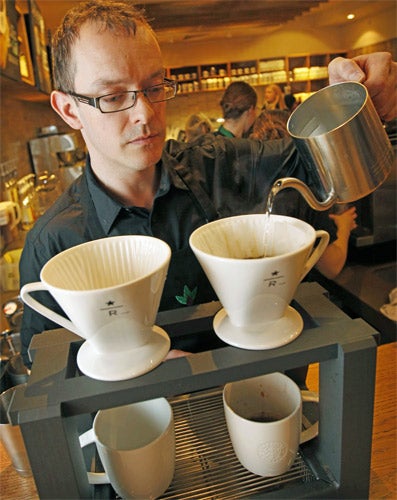Want to conceive? Then stop drinking coffee, says study
Caffeine reduces muscle activity in the Fallopian tubes, which carry eggs from a the ovaries to the womb

If you are a woman hoping to get pregnant, beware of that morning espresso or lunchtime latte – and maybe hold the Red Bull, too.
Research suggests that caffeine, the world's most widely consumed stimulant drug, can affect fertility. One study of 9,000 Dutch women found that drinking more than four cups a day cut the chances of conceiving by about a quarter. Now scientists think they have discovered why.
Caffeine reduces muscle activity in the Fallopian tubes that carry eggs from a woman's ovaries to her womb.
Little is known about how eggs move through the Fallopian tubes. It was generally assumed that the tiny, hair-like projections in the lining of the tubes, called cilia, moved the eggs along with the help of muscle contractions in the tube walls.
In experiments on mice, American researchers have shown that the drug inhibits the muscle contractions necessary to transport the eggs. In the laboratory studies at the University of Nevada, Professor Sean Ward has shown that caffeine stops the action of specialised pacemaker cells in the wall of the tubes.
These cells co-ordinate tube contractions so they occur in waves. When they are inhibited, eggs cannot move down the tubes. The research, published in the British Journal of Pharmacology, shows that the muscle contractions play a bigger part than the beating cilia in moving the eggs towards the womb.
Professor Ward said: "This finding goes a long way towards explaining why drinking caffeinated drinks can reduce a woman's chance of becoming pregnant. This provides an intriguing explanation as to why women with high caffeine consumption often take longer to conceive than women who do not consume caffeine."
A spin-off of the research is likely to be greater insight into how the Fallopian tubes work, the scientists said.
This could help doctors treat pelvic inflammation and sexually transmitted diseases. Another benefit could be improved understanding of ectopic pregnancy, a painful and potentially life-threatening condition which results in embryos growing within the Fallopian tubes.
But the link between caffeine and fertility remains controversial. Critics say it is not clear whether it is the caffeine that may lead to problems with fertility or other lifestyle factors.
Join our commenting forum
Join thought-provoking conversations, follow other Independent readers and see their replies
Comments
Bookmark popover
Removed from bookmarks